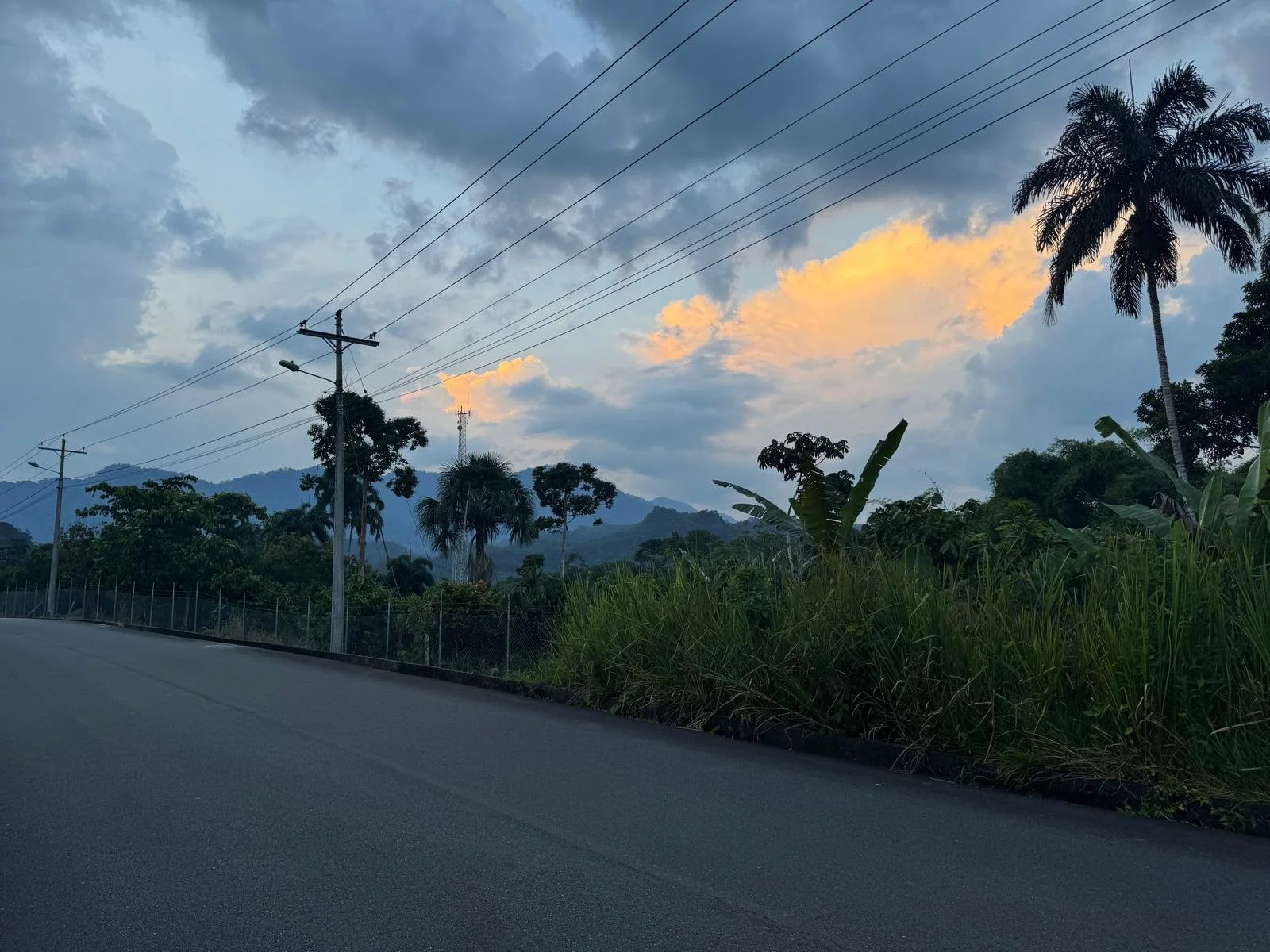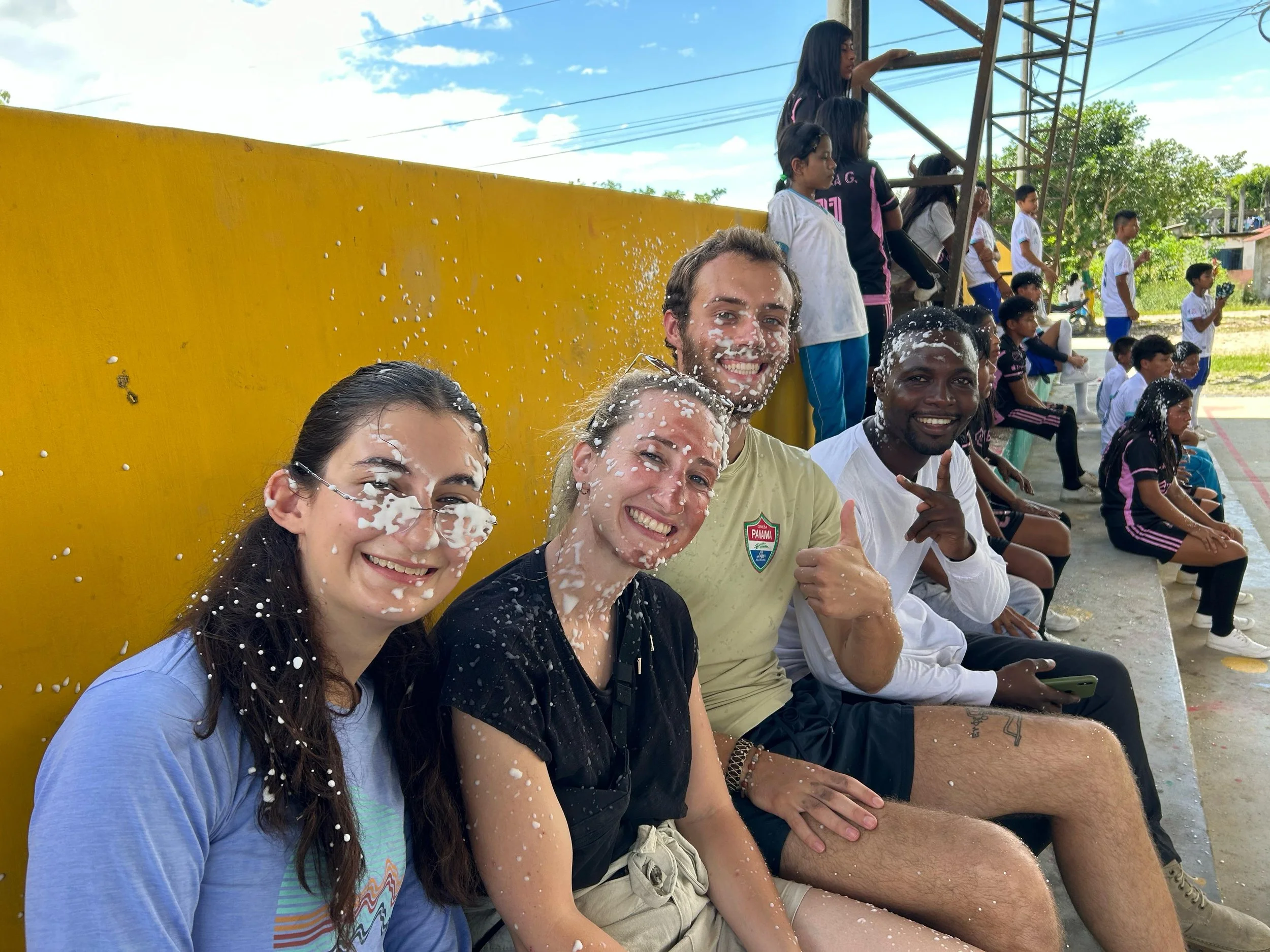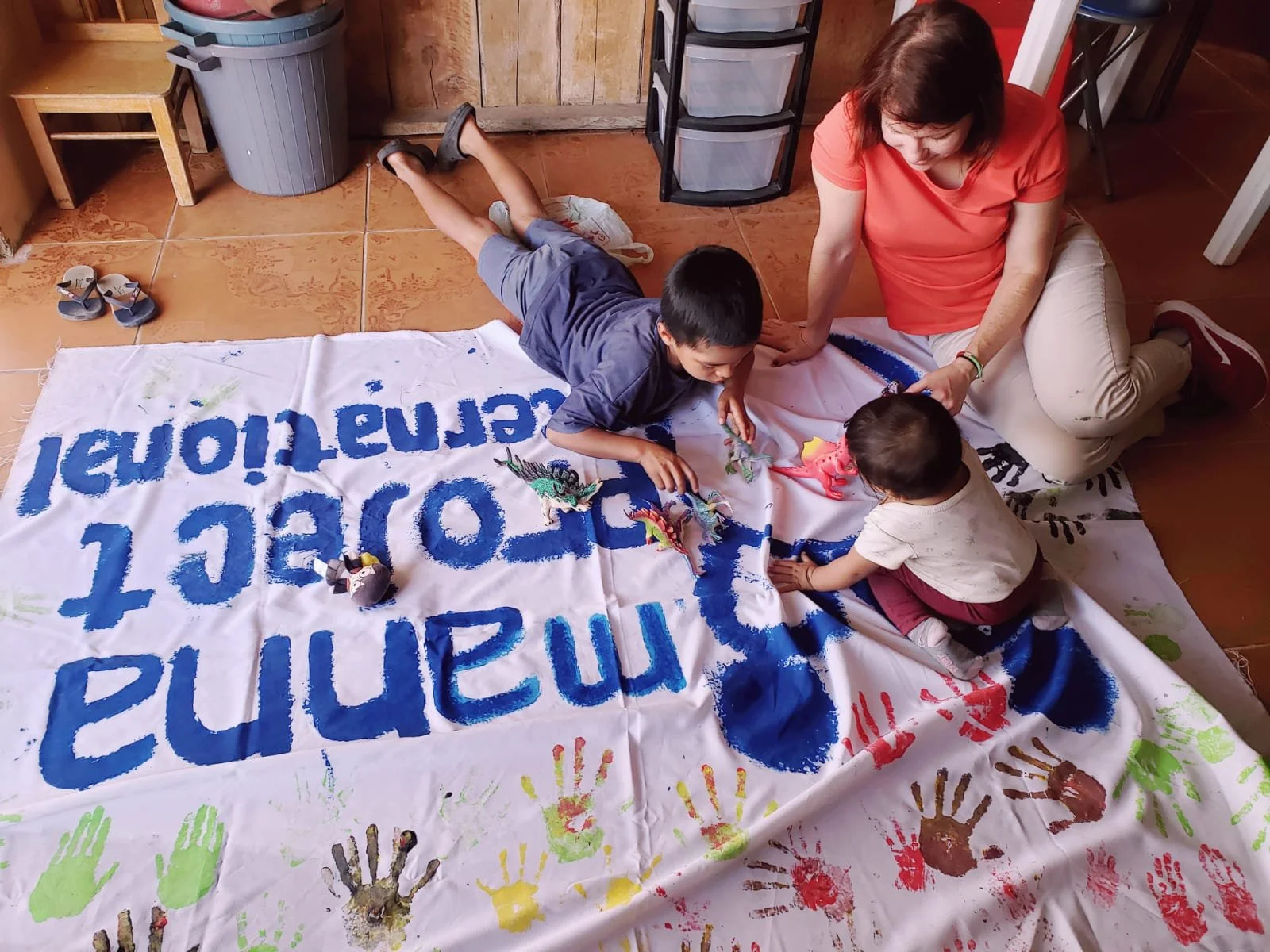When I arrive at the gates of Antorcha de Vida every Wednesday morning, I am immediately greeted by hugs, smiles, handshakes, and knuckle-pounds. When you enter Antorcha, no matter if it is your first time or your forty-first, it feels like home. I breathe easy, knowing that the next two hours will be filled with ceaseless laughter and effervescent joy.
Antorcha de Vida is one of Manna Project International Ecuador’s local partner organizations, a foundation that serves children and adults with special needs; it is also one of my favorite programs. The foundation’s director, Nancy, is the kindest woman in the world and always addresses me as “mija,” a Spanish combination of the words “mi” and “hija,” meaning ‘my daughter.’ It’s touching (but from a United States perspective also a bit odd) to be treated with such love and affection by a woman I essentially work for, but such is the Ecuadorian way of life. Antorcha de Vida was largely inspired by Nancy’s youngest daughter Natalia, who has Down Syndrome - Nancy wanted Nati to have somewhere to go where she could spend her time in both a beneficial and fun way, and after realizing such a place did not exist, took it upon herself to create it.
One of my best buds at Antorcha is Freddy. He is basically the "Antorcha Dad," always grabbing the arm or hand of other students, leading them to where we are going, explaining what we are going to do, etc. Every time we do water therapy, Freddy is the most diligent about actually practicing his kicking, arm movements, and being sure to exercise his muscles. Even when we are in the small baby pool that is only a couple of feet deep, and most of the other students are just sitting and splashing each other, Freddy can be found with his hands on the side of the pool, practicing kicking. A couple of weeks ago I asked Freddy, "Why don't you get in the pool, I'll be back in a few minutes." When I came back, Freddy was standing on the side waiting for me, and when I asked why he had not gotten in, he responded, "It is better, it is more fun with you." That just about melted my heart.
At Antorcha I have learned how to make mani dulce (a delicious caramelized peanut snack), I have learned how to administer successful water therapy, but mostly I have learned joyful and how individualistic each of the students are. Freddy is time-oriented, asking the nurses where the bus is if it is even one minute late, Shirley LOVES the children’s song “Los Pollitos” and motions for me to sing it every time she sees me, Mesías always wants to be the center of attention, Nati is shy but likes to dance if given the encouragement to do so, Pablito and Marlon have fun racing and seeing which of them is fastest, etc. All of the students inspire me as they face constant cultural discrimination and a daily uphill battle of proving to people that although they are people with special needs, they are first and foremost people.
The ‘niños especiales’ of Antorcha have helped me so much more than I have helped them, and I think that is such a beautiful side to community development that friends and family at home often do not see. Yes we are working in these communities to affect change, but we are working alongside the communities, alongside community members, helping each other. I am no savior, I am not single-handedly changing the world, but rather I am I am having my own world changed by the incredible communities with whom I work.
Eduardo Galeano said, “I don’t believe in charity. I believe in solidarity. Charity is vertical, so it’s humiliating. It goes from the top to the bottom. Solidarity is horizontal. It respects the other and learns from the other. I have a lot to learn from other people.” This is the world of co-learning, of co-growing, of co-serving in which I live, and it is a beautiful world indeed.











